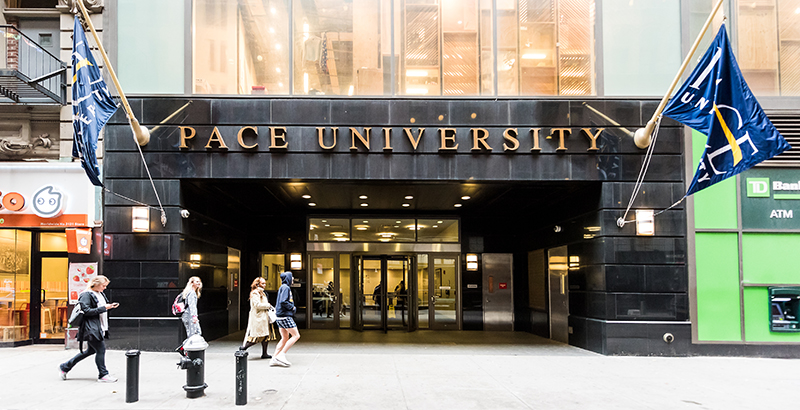Krislov: With the Right Supports, We Can Help Students With Autism Graduate From College, Find Work, and Lead Independent Lives

They call it falling off the services cliff.
Through high school, nearly all children on the autism spectrum receive some form of government-funded support. There is speech and language therapy in school, along with occupational and life-skills assistance. But after high school, that all disappears — and those graduates are left to struggle to succeed in or even apply to college, and to find and maintain jobs.
An estimated 1 in 68 children in the United States is on the autism spectrum, and some 50,000 children with autism turn 18 each year. We need to build a support structure that permits these young adults to get a college education, find work after graduation, and live happy, productive, independent, and self-sufficient lives.
It requires concerted attention from universities, foundations, government, and employers to integrate young adults on the autism spectrum into the educational and professional worlds. For example, at Pace University, the OASIS program — Ongoing Academic, Social, and Instructional Support — provides essential services for students with High Functioning Autism Spectrum Disorder.
Each OASIS student meets with an academic coach for an hour each day for guidance on assignments, organization, and time management. An educational coordinator advises on course selection and registration. A social worker provides social and emotional support. A housing coordinator helps students navigate residential life. Social coaches assist with social literacy and growth. And an internship coordinator works with the career services department and other organizations to identify internship opportunities that match students’ interests and skills.
All juniors and seniors in the program attend 12 weeks of employment workshops and training, undergoing mock interviews on- and off-campus to help hone job-seeking skills. Each summer, they complete a paid internship, gaining real-world employment skills. After graduation, we work to help them find jobs, and to ensure they have the skills to maintain those jobs.
That kind of intervention and support works: OASIS students have successfully maintained an average combined GPA of 3.0 or higher in each of the past six semesters, and 77 percent complete a bachelor’s degree within five years. One student, who graduated last year with extensive coaching on executive functioning, now holds a full-time job in data analytics at Bloomberg LP. Other recent graduates have found internships and jobs at magazines, in the film industry, and in public education. One is working full-time at AHRC New York City, a nonprofit that helps people with developmental disabilities build full lives.
We must, as a society, support these young people as they move into adulthood. Universities and foundations already devote research funding to finding ways to improve outcomes; now, they must develop and share best practices for educating students on the autism spectrum. Employers must be educated to understand autistic workers’ needs and how to leverage their special skills to companies’ best advantage. They must realize what employees on the autism spectrum can bring to their enterprises — as with all diversity efforts — and come up with creative ways to recruit and retain these talented young people.
With our help, young adults with autism can learn life skills and live successfully on their own. As more and more students with autism age into college and independence, it’s up to us to make sure these young adults don’t fall off that cliff.
Marvin Krislov is president of Pace University.
Get stories like these delivered straight to your inbox. Sign up for The 74 Newsletter

;)